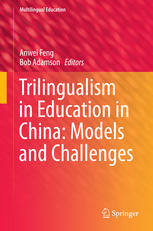

Most ebook files are in PDF format, so you can easily read them using various software such as Foxit Reader or directly on the Google Chrome browser.
Some ebook files are released by publishers in other formats such as .awz, .mobi, .epub, .fb2, etc. You may need to install specific software to read these formats on mobile/PC, such as Calibre.
Please read the tutorial at this link: https://ebookbell.com/faq
We offer FREE conversion to the popular formats you request; however, this may take some time. Therefore, right after payment, please email us, and we will try to provide the service as quickly as possible.
For some exceptional file formats or broken links (if any), please refrain from opening any disputes. Instead, email us first, and we will try to assist within a maximum of 6 hours.
EbookBell Team

0.0
0 reviewsThis book examines language policies and practices in schools in regions of China populated by indigenous minority groups. It focuses on models of trilingual education, i.e. education in the home language, Putonghua (Mandarin Chinese, the national language), and English (the main foreign language). Special attention is given to the study of the vitality of the minority home language in each region and issues relating to and the effects of the teaching and learning of the minority home language on minority students’ acquisition of Mandarin Chinese and English and on their school performance in general. The book also examines the case of Cantonese in Guangdong, where the local Chinese ‘dialect’ is strong but distant from the mainstream language, Putonghua. It takes a new approach to researching sociolinguistic phenomena, and presents a new methodology that emerged from studies of bi/trilingualism in European societies and was then tailored to the trilingual context in China. The methodology encompasses policy analysis and community language profiles, as well as school-based fieldwork, and provides rich data that facilitate multilevel analysis of policy-in-context.